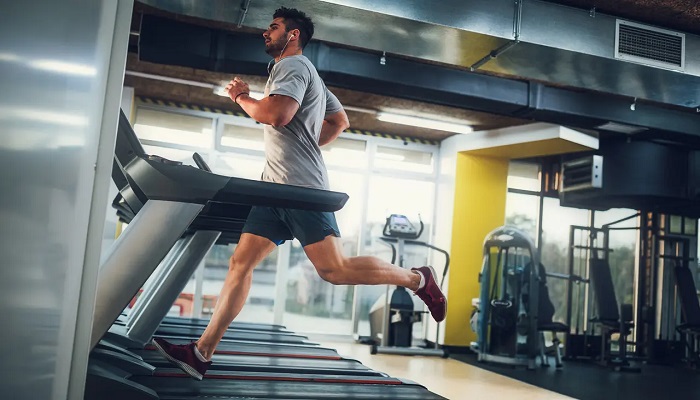People work out for any number of reasons. Sometimes, the goal is simply to lose weight. In other cases, the incentive is general health and wellness. And in still further cases, athletes want to grow more visible muscle mass.
Bodybuilding can be an effective way to accomplish each of these goals, all through the generation of muscle mass through disciplined, resistance-based exercise. Simply put, bodybuilding is a great option for anyone who’s invested in their personal health as well as their physical aesthetics.
But what should novices know about the link between bodybuilding and fitness? Here’s a comprehensive guide.
What are the Health Benefits of Bodybuilding?
First and foremost, it’s important to establish that bodybuilding really does enhance your personal health. It’s not just about looking “bigger,” but about optimizing how your body functions. Consider just a few of the health benefits of bodybuilding:
- The exercise associated with bodybuilding helps lower your risk of heart disease, while also allowing you to control your blood pressure and cholesterol.
- Not only does bodybuilding strengthen your muscle, it can also bolster your joints and ligaments.
- Bodybuilding can improve your flexibility.
- A bodybuilding routine may also help you stave off conditions such as arthritis.
- Bodybuilding is good for your mind, too, potentially elevating your mood and improving your self-confidence.
These are just a few of the ways in which bodybuilding can make you a more rounded and fit person.
Bodybuilding & Fitness: Exploring the Basics
Now the question is, how do you take advantage of these bodybuilding benefits in a smart, safe, and strategic way? Consider a few recommendations for fitness-first bodybuilding.
Nutrition and Supplements
To prioritize your fitness, it’s important to remember that bodybuilding isn’t just about exercise. It’s also about nutrition. To fuel your body, most bodybuilding coaches recommend:
- Remember that your body needs more energy than it burns each day, which means skipping carbohydrates altogether is a no-go.
- To pack muscle mass, you’ll need lots of protein. In fact, it’s recommended that you consume a gram of protein for each pound of body fat, each and every day.
- To get your protein fix, consider spreading out your meals. Try six smaller meals each day, supplemented with protein shakes, as opposed to just two or three big meals.
- It’s especially important to time meals just before a workout. Pre-workout supplements can be helpful for getting the carb rush you need before hitting the gym.
- There’s much to be said for supplements, and we’ll come to that in just a moment, but remember that the majority of your nutrients should come from whole foods.
- Some foods that should be dietary staples: Meats, poultry, fish, low-fat milk and cheese, starchy vegetables, whole grains, fruits.
- Some foods to avoid: Alcohol, anything deep-fried, and anything with added sugars.
On the subject of supplements, one option to consider is peptide therapy. Peptides are made to mimic naturally-occuring substances in your body, which means they tend to be very well-tolerated. A peptide like BPC-157 is actually made from human gastric juices, and can help build muscle, ligament, tendon, and bone. As such, it can be a powerful aid for recovery and for injury prevention. Seek BPC-157 for sale from a reputable, US-based manufacturer.
Daily Workouts
Newcomers to bodybuilding will need to develop custom workout plans to safely build muscle mass, all while promoting personal fitness. Here are some general guidelines for getting those daily workouts right:
- The most important thing is to ensure that you are constantly challenging your muscles, which might mean gradually increasing weight or reps, or simply altering your grip.
- Avoid the “one set to failure” approach. You’ll need to do multiple sets, ideally three to five, to get the targeted muscle growth you need.
- For best results, it may be wise to alternate between full-body workout days and days targeting just a couple of muscle groups.
- Allow yourself two to three minutes of rest between different exercises. Rest is a critical part of safe, healthy workouts!
This raises another important question: How often should bodybuilders work out? For novices, two or three strength training sessions per week is usually fine, though you can safely work out five days a week if you wish. However, it is important to allow yourself a solid 48 hours of rest before repeat workouts with the same muscle group. Also remember that peptides for muscle growth and proper peptide therapy can potentially make your rest days more impactful.
General Safety
A few additional tips for new bodybuilders who are seeking safety in their workouts:
- Always be sure you work out while wearing clothing that allows a full range of motion.
- If you’re unfamiliar with a specific exercise or piece of equipment, don’t hesitate to ask a more experienced bodybuilder for help.
- Ensure all weight plates are properly secured before you try to lift anything.
- Begin each session with a warm-up before you move on to heavier weights.
- Remember that practicing perfect form is just as important as upping your weights or reps.
- If you start to feel dizzy or faint, that means you need to stop what you’re doing!
Promote Fitness and Strength Through Bodybuilding
As you consider different ways to build strength and increase fitness, consider the merits of bodybuilding. Use these guidelines to make a safe, effective start.



















